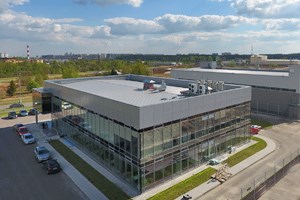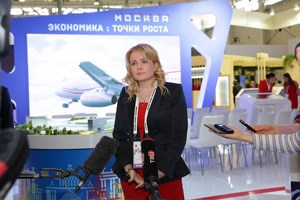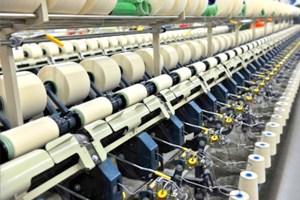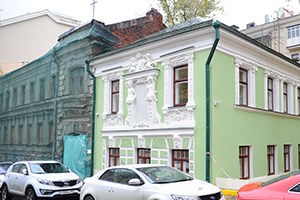



The Department of Economic Policy and Development of Moscow and the Moscow City Investment Agency present the new issue of the Digest of Moscow’s principal investment events.

Moscow has made amendments to existing legislation concerning taxation to enhance the competitiveness of the city’s special economic zone (SEZ).
First, SEZ residents will be offered a zero profit tax payable to the city’s budget for ten years starting from 1 January 2018. Over the following five-year period from 2028 to 2033, the rate will be 5%. Starting from 2033 and beyond, the tax rate will be 12.5%. Residents and management companies in special economic zones will also be exempted from paying the transport tax for ten years.
Second, management companies of special economic zones will be subject to a reduced profit tax rate of 12.5% starting from 1 January 2017 and 13.5% from 1 January 2021. The bill was adopted by Moscow parliament in the final version.
“Moscow is paying special attention to enterprises that work in high-tech manufacturing and are flagships in the industry”, Head of the Department of Economic Policy and Development of Moscow Vladimir Efimov said. “Of course, the city will accommodate them by providing benefits and simplifying administrative procedures. Our joint work with business and Moscow Parliament should result in an influx of investment to the city’s economy”.
The changes also affected technopark residents. Moscow City Duma deputies adopted amendments to Law No. 55 “On the Industrial Policy of Moscow”, which allow to attract strong companies and promising projects in innovative business to the city’s technoparks.
Now companies that have separate units outside of Moscow will be able to obtain the status and preferences of an anchor resident. Restrictions had previously been in effect for such organizations. In addition, economic and property criteria requirements will be unified for the activities of technoparks residents when granting them the status of an anchor resident, as it has already been done for the management companies of technoparks.
“To date, 30 technoparks have already opened in the capital along with the same number of industrial complexes, and numerous new applications have been submitted. Residents have already invested RUB 46.6 billion in their business on their territories, and high-paid jobs are being created”, Director of the Department of Science, Industrial Policy and Entrepreneurship of Moscow Alexey Fursin said.

From 6–13 July, Moscow hosted the Urban Forum, a major platform for discussing the future of cities and agglomerations. The theme of the Moscow Urban Forum this year was ‘Age of Agglomerations. New World Map’. Its participants included 24 governmental delegations, including foreign ones, led by the mayors of Istanbul, Dusseldorf, Vientiane, Bishkek, Iganga and Balti. In addition, the forum was visited by nine Russian delegations headed by regional leaders and mayors. Architects, developers, and economists considered problems and prospects for the development of the planet’s megacities based on the example of Moscow.
“Moscow is creating more than five million jobs and is a donor to the federal budget. Attractive conditions have been created for investors in the Russian capital and priority growth points for driving the regional economy have been identified”, Deputy Mayor of Moscow City for Economic Policy and Property and Land Relations Natalya Sergunina said.

During the forum, Moscow City Mayor Sergei Sobyanin said reorganizing industrial zones was one of the city’s priorities. He cited the territory of the former Likhachev plant (ZIL) as a successful example of the renovation of industrial zones. The former plant site will get modern transport infrastructure, public amenities and landscaping, including the Moskva River embankment.
“The territory of ZIL is in an active stage of implementation. This enormous gloomy site is being transformed into an area of active economic development. Residential areas are being built here, a sports cluster is on the verge of being completed, and construction is starting on roads, park areas and an embankment”, Sobyanin said.
In addition, another industrial zone in Moscow will be completely rebuilt in the near future. The ‘Dream Island’ park under construction in the Nagatinskaya floodplain in southern Moscow was presented at the forum. The largest all-season indoor amusement park in Europe and Asia will open in the centre of the park under a giant glass cupola. At present, the ‘Dream Island’ theme park is 35% complete. Construction is scheduled to be completed in 2018. In addition to investment in urban infrastructure and the development of Moscow’s tourist brand, ‘Dream Island’ will create more than 7,500 jobs.

The International Medical Clusterat Skolkovo plans to open foreign clinics that will be able to use foreign medical technologies and drugs without restrictions, Moscow City Mayor Sergei Sobyanin said during a presentation of the project to investors at the Moscow Urban Forum.
He said Moscow clinics are already equipped with modern equipment, an enormous amount of money is being invested in the modernization of their material resources, and training is regarded as the best in Russia, but the country has certain standards and requirements, including restrictions on the import of drugs and exchanges of personnel and experience, which prevent the Russian capital from competing with other global megacities. With this in mind, several years ago the city came up with the idea of creating the Moscow International Medical Cluster as a site where specialists and clinics from the countries of the Organisation for Economic Cooperation and Development could work without restrictions.
Russian companies will operate and build the project, while foreign companies that have the necessary licenses and accreditation will be able engaged in medical activities.

Moscow City Investment Agency Director Leonid Kostroma took part in a panel discussion at the Moscow Urban Forum ‘Renewing the Economy. Relocating Production Facilities the Right Way’.
The discussion focused on renovations to Moscow’s industrial areas and how to make vacant sites interesting to investors. Kostroma spoke about reducing the regional tax burden as a mechanism of support for existing enterprises and new investment projects.
Speaking at the plenary session ‘Urban Symbiosis. Public-Private Partership (PPP) Models in Global Agglomerations’, Kostroma talked about the development of the PPP mechanism in Moscow and stressed that observing a balance of interests between cities and investors is the foundation for the PPP practice in the capital.
Moscow has concluded almost RUB 700 billion worth of contracts on PPP terms over the last four years. The capital has successfully implemented project coordination systems, making PPP programmes as effective as possible in the city. Moscow has adopted regulatory acts to establish clear rules for interaction between investors and authorities and also institutionalized procedures and requirements to obtain preferences for investment projects.

The auctions could be viewed online.
“There is an average of 16 participants per lot. The high level of competition shows that entrepreneurs have accepted the conditions offered by the city and understand the electronic bidding procedure. It enables everyone to compete on the same terms”, Deputy Mayor of Moscow for Economic Policy and Property and Land Relations Natalya Sergunina said.
Head of the Department for Competition Policy of Moscow Gennady Degtev also noted that competition in such bidding remains high. “Over the last year and a half, the right to sell goods at 346 non-stationary retail facilities at 125 metro stations has been auctioned via electronic bidding. An average of 20 participants applied for a lot”, he said. The starting price of contracts was exceeded by 150%, he said.
Nonstationary retail facilities for which the auction participants receive the right to sell goods for five years are located at 81 metro stations. Most of the NRF have a range of specializations.

According to a survey by PwC, Moscow ranks second among the 20 largest agglomerations of the world after New York, the largest agglomeration.
This year, Moscow was recognized as one of the most dynamically developing agglomerations. Among the capital’s growth points, experts cited education, health care system, a decent level of income, low level of unemployment, a huge raw material base and the social sector.
Moscow also became one of the world’s top five largest cities that are ready to introduce the technologies of the future. According to the PwC study ‘The Future is Coming: Cities Readiness Rating’, the Russian capital is a leader in such categories as virtual services for citizens, infrastructure readiness, open adaptive learning and digital economy.
In addition, Moscow received a prize from the World e-Governments Organization of Cities and Local Governments (WeGO). Over the last five years, the number of electronic services in Moscow has increased by almost 14.5 times, and every second resident of the city uses electronic public services.

The Department of Economic Policy and Development of Moscow has released a report on the work performed in the first half of 2017. The main indicator of the city’s economic development in the first half of 2017 was growth in nominal wages, which increased almost 8% in January–April. Positive dynamics were seen in all sectors (except for energy, the restaurant business, sports and repair). Moscow also has a low level of registered unemployment at around 0.46%.
“The growth rates in average monthly salaries in the capital are clearly outperforming national salaries. Whereas nominal wages in Russia increased by 7% on average in the first four months of 2017 compared to the same period of last year, the pace in the capital is higher at 7.9%”, Minister of the Moscow City Government and Head of the Department of Economic Policy and Development of Moscow Vladimir Yefimov said.

The achievements of the Moscow economy also include the ever growing number of individual entrepreneurs. The number of new businessmen in the capital increased by 20.8% over the first five months of 2017 compared with January–May 2016.
For the year, the total number of existing individual entrepreneurs increased by 11.1%, or by 27,000. The number of newly registered legal entities grew by 15.2% compared to the same period of last year.
Retail trade turnover grew by 5% in current prices compared with January–May 2016. The production of electrical equipment and pharmaceutical products increased by more than 25% in the first five months of 2017. The production of office furniture is also evolving.
More than 40,000 permits to use the simplified tax system valued at RUB 3.8 billion were acquired in the first quarter of 2017. The number of permits granted exceeds the figure for the same period of 2016 by 40%, while the volume of permit fees increased by 60%. Retail trade is traditionally the record setter in quantitative terms: more than 20,000 permits were acquired for this type of activity in the first quarter for a total of RUB 2.3 billion. The number of permits increased by 34% compared with last year, while total permit fees skyrocketed by almost 90%.

Investors continue to invest actively in urban projects with construction being the most attractive area. The volume of construction work in the capital increased by 7.4% in January–May. Investments grew by almost 29% compared to the first quarter of last year.
Deputy Mayor of Moscow City for Economic Policy and Property and Land Relations Natalya Sergunina previously reported that Moscow accounts for 12% of all investments in Russia. Total investments in fixed assets increased by 0.7% in comparable prices in 2016 versus 2015 and amounted to RUB 1.7 trillion.
Over the last six years, investment in the city’s economy has increased by more than 50%. The Troitsky and Novomoskovsky Administrative Districts alone received roughly RUB 870 billion in direct investments over the last five years. Moscow accounted for roughly 10–15% of this amount, while the rest came from private investments.
Moscow has created favourable conditions for investors, so it is profitable for them to come to the city and develop business. All aspects of the city’s economic policy focus on investment activities, including a stable budget policy, tax incentives, contained tariff increases, growing budgetary investments and measures taken by the city to reduce administrative barriers. The development of public-private partnership and measures to stimulate investment in the real sector of the economy are also key factors for investment growth.

“The capital’s light industry sector demonstrated the maximum growth in output among manufacturing industries over the first five months of 2017. Textile production skyrocketed by 168% compared with the same period of 2016”, Minister of the Moscow City Government and Head of the Department of Economic Policy and Development of Moscow Vladimir Efimov said.

“The city managed to save RUB 22.9 billion as a result of verifying the initial prices of contracts concluded for the city’s needs as part of state procurements”, Minister of the Moscow City Government and Head of the Department of Economic Policy and Development of Moscow Vladimir Efimov said.
The checks conducted by the Moscow City Investment Agency, Moscow State Expertise and independent expert organizations concerning the initial (maximum) prices of contracts concluded for the city’s needs as part of state procurements generated budgetary savings of RUB 19.8 billion, or almost twice the amount in January–June 2016. In addition, work performed by an interdepartmental working group to check the initial (maximum) prices produced more than RUB 250 million in additional savings.
An expert evaluation of the initial (maximum) contract prices for the state procurements of state unitary enterprises of Moscow, business companies and state autonomous and budgetary institutions of Moscow reduced budget expenditures by an additional RUB 2.8 billion from the beginning of the year, an increase of 69% compared with January–June 2016. In total, the expert evaluation in these two areas saved the city RUB 22.9 billion over the first six months of 2017.

Twelve online services of the Moscow Investment Portal can be found on the website of the Department of Science, Industrial Policy and Entrepreneurship of Moscow in the Entrepreneur section. Representatives of small- and medium-sized business can receive e-services here to organize and do business online. A similar section has appeared on the website of the Department of City Property of Moscow.
The Online Services section of the Moscow Investment Portal has been operating since the start of 2016. Since that time, the website’s interactive services have been utilized more than 43,000 times. Such services aim to make doing business more convenient, save investors’ time and enhance effective interaction with the Moscow City Government.

“Cultural heritage sites account for roughly half of the private funds in the capital’s ‘rouble per metre’ programme for the preferential lease of urban real estate, which includes education, healthcare and cultural sites”, Moscow City Investment Agency Director Leonid Kostroma said at the ‘Investment in Culture’ business brunch.
He presented the event participants and guests with Moscow’s programme for the restoration of cultural heritage sites using public-private partnership mechanisms and leases with investment commitments. To date, investors have leased 20 buildings, including 13 that are in the restoration process and seven that have been commissioned and already switched to the rate of RUB 1 per square metre per year.
The International Real Estate Business Forum 2017

The Department of Economic Policy and Development of Moscow
www.depr.mos.ru

Moscow City Investment Agency
investmoscow.ru

Purchasers’ portal
www.zakupki.mos.ru
The Moscow Digest archive is available at the Moscow Investment Portal.